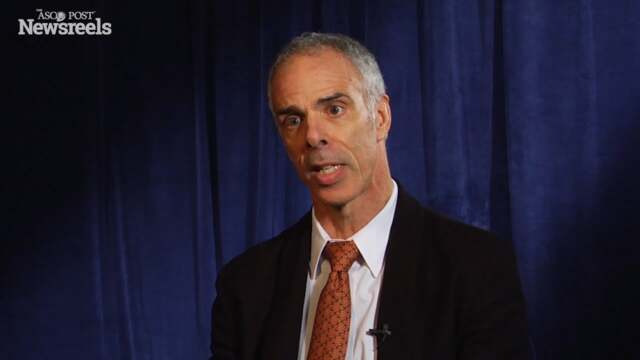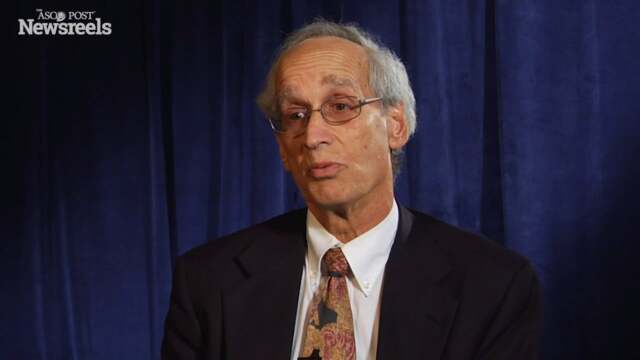Robert Kuske, MD, on PROMIS Registry Results
2015 ASTRO Annual Meeting
Robert Kuske, MD, of Arizona Breast Cancer Specialists, discusses the evaluation of more than 1,300 patients with accelerated partial-breast irradiation via multicatheter interstitial brachytherapy, focusing on toxicity and cosmetic outcomes (Abstract 133).
Supriya Chopra, MD
Supriya Chopra, MD, of Tata Memorial Hospital, discusses results of the PARCER study, which compared conventional 3D conformal radiotherapy to image-guided intensity-modulated radiotherapy in reducing bowel side effects for women with cervical cancer (Abstract 8).
Reshma Jagsi, MD, DPhil
Reshma Jagsi, MD, DPhil, of the University of Michigan Health System, discusses this multicenter phase 1 study of veliparib given concurrently with chest wall and nodal radiation therapy in patients with inflammatory or locoregionally recurrent breast cancer (Abstract 312).
Anthony Zietman, MD
Anthony Zietman, MD, of Massachusetts General Hospital, discusses his perspective on the study of bicalutamide during and after radiotherapy in patients following radical prostatectomy and a biochemical relapse (Abstract LBA5).
Joel E. Tepper, MD
Joel E. Tepper, MD, of the University of North Carolina School of Medicine, discusses the ways in which SBRT has changed radiotherapy, as demonstrated in key studies presented at this year's meeting on stereotactic body radiotherapy for liver metastases and hepatocellular carcinoma, and borderline resectable and unresectable pancreatic tumors (Abstracts 253, 255, 351, 357).
Bruce Minsky, MD
ASTRO President Bruce Minsky, MD, of MD Anderson Cancer Center, talks about the goals and highlights of this year’s ASTRO Annual Meeting.





